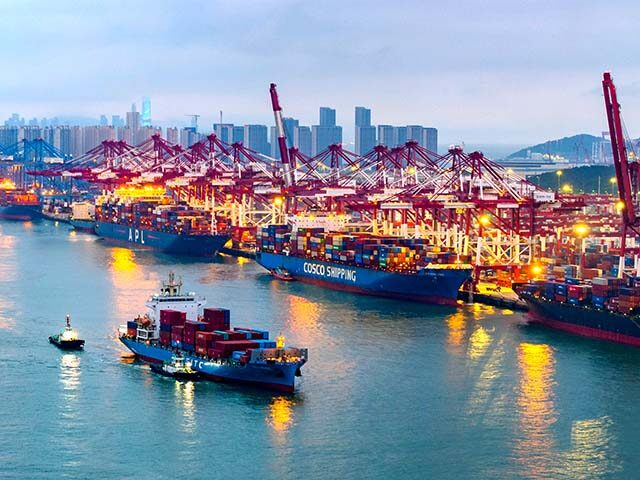The Free Trade Agreement (FTA) signed between Nicaragua’s communist regime and China has had little to no effect on improving the Nicaraguan economy, the local newspaper La Prensa reported on Friday.
China has reportedly only bought roughly one percent of Nicaragua’s exports since the start of the agreement, much less than expected.
Nicaragua and China signed an FTA last year that came into effect at the start of January 2024. Communist dictator Daniel Ortega described the agreement last year as a “lifeboat” for his Sandinista regime and “the best Christmas gift,” claiming that the deal with China was a “strategic” step to overcome U.S. sanctions.
Nicaraguan authorities offered very sparse details of what the FTA with China entails to local media weeks before its start, with little to no transparency on the information provided beyond listing textiles, meat, coal, paper, wood, and cardboard as some of the materials that Nicaragua would export to China through the agreement.
La Prensa, after reviewing official reports from the Nicaraguan Commerce and Trade Ministry, found that China only purchased 1.2 percent of Nicaragua’s total exports during the first eight months of the FTA, worth a total of $62.8 million.
The Nicaraguan newspaper pointed out that, despite tensions between the U.S. and Nicaragua due to Ortega’s “weaponization” of migrants against America, the United States represented 48 percent of Nicaragua’s total exports during the first eight months of 2024, paying the country a total of $2.45 billion.
Since 2022, Ortega has implemented policies that allow immigrants from Latin America, Africa, and Asia to freely pass through Nicaraguan territory to reach the United States. The policies, experts have asserted, are intended to force Washinton to hold talks for potential sanctions reliefs for the communist regime. Ortega has also allowed U.S. migrants to utilize Managua’s international airport as a stopgap on their journey, charging migrants fees and fines for the use of the facilities.
Reports reported in June that Ortega’s actions allowed 647,000 migrants to reach the U.S. southern border, stressing that, “if the trend continues,” that number could surpass one million by the end of 2024.
Despite Ortega’s weaponization of migrants against the United States — and his open calls for the “disappearance” of America — the United States remains Nicaragua’s top trading partner.
The FTA with China, despite its apparent lack of financial benefit for Nicaragua according to La Prensa‘s report, is among the growing list of Chinese Communist Party moves to further cement its foothold on the Central American nation and gain control of its infrastructure and resources under the auspices of Ortega’s communist regime.
Ortega had Nicaragua join China’s predatory Belt and Road Initiative (BRI) debt trap program in 2022. Since then, the ruling Sandinistas have overseen a dramatic acceleration of China’s business links with the country, signing new deals often under favorable terms for Chinese companies.
Some of the most recent deals signed by both countries include a growing list of Chinese loans for infrastructure works to several 25-year gold mine leases granted to Chinese mining companies, including the first open pit gold mining lease.
In a separate report published on Friday, La Prensa stated that, although the Ortega regime announced “with great fanfare” the signing of multi-million-dollar loans to develop infrastructure projects with China, Nicaragua’s Gross Domestic Product (GDP) will not grow more than 4.5 percent in the next three years according to official budget guideline documents for the 2025-2028 period reviewed by the newspaper.
“The regime maintains an expectation of low economic growth, despite the fact that in the budget guidelines it mentions projects with Chinese resources and partly attributes its projection to these works,” La Prensa stated.
The Nicaraguan government document reviewed by La Prensa lists some of the infrastructure projects deals that the country signed with China, making special mention of the renovation of the Punta Huete military airport, originally built by the Ortega regime in the 1980s and which the Sandinistas plan to expand and transform into the country’s second international airport through a $400 million loan from China.
Christian K. Caruzo is a Venezuelan writer and documents life under socialism. You can follow him on Twitter here.

COMMENTS
Please let us know if you're having issues with commenting.